Amid the fervent race for athletic scholarships and college sports recruitment, an often overlooked but staggering statistic reveals that a mere 2% of high school athletes make it to the NCAA level—a testament to the hyper-competitive nature of college sports recruiting. This figure underlines the significance of every interaction an aspiring student-athlete has with college coaches, emphasizing the importance of crafting carefully considered questions to ask college coaches.
When navigating the intricate web of college sports recruiting, understanding the art of athletic scholarship inquiries and the nuances of interviewing college coaches becomes paramount.
Not only do these conversations pave the pathway to potential opportunities, but they also mark the beginning of what could evolve into a transformative relationship for both the student-athlete and the collegiate sports program.
The communication maze teems with unwritten rules: a delay in response from a coach does not necessarily signal disinterest—after all, governance regulations dictate when and how a coach can initiate contact.
Recruits must recognize that a coach’s reticence may be more procedural than personal. The dance of recruiting requires a consistent and strategic approach to every query posed, irrespective of whether the stage is set via email or in the heat of a face-to-face meeting.
Key Takeaways
- Recognize the competitive nature of NCAA recruitment and the rarity of securing athletic scholarships.
- Prepare strategic athletic scholarship inquiries to stand out in college sports recruiting.
- Remember that coaches follow regulatory communication protocols, influencing the timing of responses.
- Maintain professionalism and adherence to protocol across all interactions with college coaches.
- Approach each conversation with coaches as an opportunity to forge a significant relationship.
- Follow expert guidelines in written and verbal communication to enhance recognition prospects.
Introduction to College Sports Recruiting
The journey of college sports recruiting is as strategic as it is competitive. For student-athletes aspiring to play at the collegiate level, understanding the framework within which coaches operate can greatly influence their communication and overall recruitment experience.
The process is not simply about showcasing athletic skills but also demonstrating the capacity to engage effectively with college coaches—a quintessential component of any successful college sports recruitment endeavor.
Understanding the College Coach’s Perspective
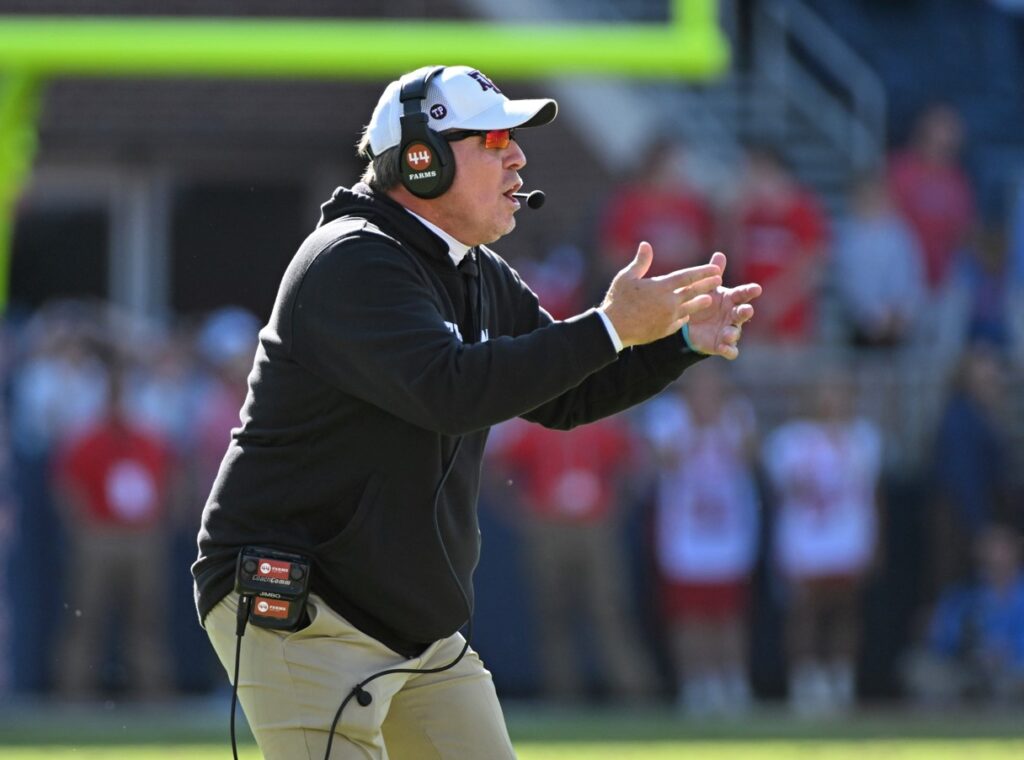
Source: apnews.com
College coaches have a multifaceted role during the student-athlete recruitment phase. They are tasked with identifying talent that will contribute to their team’s success, while also ensuring these prospects meet the institution’s academic standards and reflect its values.
Prospective student-athletes must recognize that coaches are bound by NCAA regulations governing recruitment practices and communication timelines. Therefore, student-athlete questions should be posed mindfully, respecting the coaches’ compliance with these rules.
The Importance of First Impressions
In an environment characterized by high stakes and innumerable interactions, first impressions can lay the groundwork for future rapport between a coach and a recruit. When it comes to communication with coaches, potential recruits should maintain professionalism and courtesy at all times—be it in the written form of an email or the spoken word during an athletic event or campus visit.
These initial correspondences are often indicative of the student-athlete’s character and can set a positive tone for all subsequent engagements. For recruits, it is critical to navigate this terrain by preparing thoughtful college coach questions that reflect a genuine understanding and interest in the program they aspire to join.
How to Conduct Initial Outreach to College Coaches
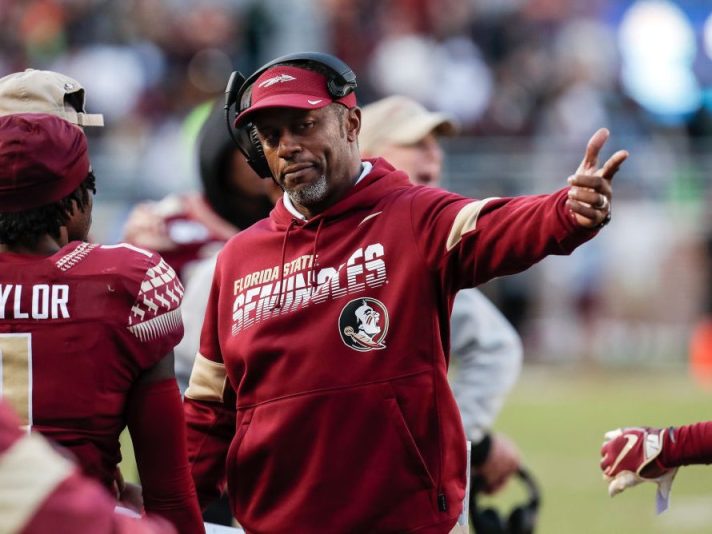
Source: muzejvojvodine.org.rs
Making the first move towards establishing a communication line with a college coach is a significant step for a prospective student-athlete. The way one approaches this initial contact can set the stage for future interactions and potentially influence a coach’s perception. In a landscape where effective questions for coaches and strategic recruiting questions matter, understanding the essentials of email etiquette is vital. The following are key factors to consider when crafting that all-important initial email to a college coach.
Crafting the Perfect Email
The pursuit of a college athletic career starts long before you set foot on the field—it begins with a clear and concise email to your prospective coach. This initial piece of communication is your chance to make a lasting impression.
It should be meticulously structured, integrating both an overview of your athletic credentials and a personal expression of why you’re drawn to that specific college’s program. Remember to tailor your message to each individual coach, showing that your interest is as authentic as your talent.
Email Account and Address Best Practices
Your email address is often your first introduction to a coach; hence, crafting one that is both professional and indicative of your identity as a student-athlete is paramount. A combination of your name and graduation year, such as [email protected], serves to personalize and date stamp your athletic candidacy.
This setup affords coaches a more straightforward way to file and recall your interactions amongst the many recruits they may be considering. Ultimately, this level of attention to detail could set you apart in a crowded field of hopefuls.
Questions to Ask College Coaches (And What NOT to Ask)
Embarking on the journey to become a student-athlete at the collegiate level involves engaging in meaningful dialogue with potential coaches. An informed approach to asking questions can reveal the depth of a program while also displaying the recruit’s seriousness about their athletic and academic future. Below is a guideline covering both recommended recruiting questions and subjects to avoid, ensuring prospective student-athletes conduct themselves with professionalism and tact.
When delving into athletic scholarship inquiries or probing into the specifics of a collegiate team’s dynamics, it is imperative to ask the right questions at the appropriate time. The breadth of inquiries can encompass a range of topics from academic support to understanding the coach’s vision for the team’s future. Here is an assortment of questions designed to garner meaningful insights:
| Recommended Questions | Questions to Avoid |
|---|---|
| What are the academic expectations for student-athletes in your program? | What are my chances of starting as a freshman? |
| Can you describe your coaching philosophy and style? | How many other athletes are you currently recruiting in my position? |
| How does the program support athletes in balancing sports and academics? | When can I expect a scholarship offer? |
| What are common career paths for athletes who graduate from the program? | How much playing time will I get? |
| What is the team culture like, and what type of players thrive in your program? | Can you guarantee my position on the team will be secure for all four years? |
| Could you explain the injury protocol and support provided to athletes? | Can you change the practice schedule to better fit my personal commitments? |
Tactful engagement with these queries can open doors to understanding the integrated experience of an academic institution and its sports program. They demonstrate an athlete’s genuine interest and help in gauging if the institution is the right fit for their aspirations.
On the contrary, posing questions prematurely about scholarships can be perceived as presumptuous and might jeopardize the rapport with the coach. Instead, a focus on sustained progress and thoughtful athlete questions fosters a respectful and productive coach-recruit relationship.
The Art of Interviewing College Coaches
Mastering interviewing college coaches involves more than just verbal exchanges—it’s about presenting oneself as a capable and dedicated individual both on and off the field. A first impression during an interview can be a make-or-break moment, thus grasping the nuances of interaction is crucial for aspiring student-athletes.
Personal Presentation During Meetings
Projecting a professional image during meetings is a fundamental aspect of successful interviews with college coaches. A well-groomed appearance, firm handshake, and direct eye contact help to establish a rapport based on respect and confidence. Whether responding to or posing effective questions for coaches, clarity and brevity will communicate a recruit’s preparedness and genuine interest in the program.
Effective Communication with Coaches
Communication with coaches goes beyond simply asking questions; it’s about actively listening, understanding their perspectives, and responding thoughtfully. Respectful dialogue shows that a prospective student-athlete values the coach’s time and insight. By articulating a clear understanding of the program’s values and goals, an athlete can solidify their place as a strong candidate for the team.
“Successful communication with coaches is characterized not by the quantity of words exchanged, but by the quality and relevance of the conversation. It’s the fine balance of speaking one’s truth while also engaging with the coach’s vision for their program.”
- Introduce yourself with a well-rehearsed elevator pitch that highlights your athletic and academic achievements.
- Display sportsmanship by acknowledging team and personal growth opportunities.
- Offer a thoughtful overview of your career goals and how they align with the program’s ethos.
| Do’s | Don’ts |
|---|---|
| Dress in business-casual attire to convey seriousness. | Avoid overly casual or non-professional attire that may undermine your first impression. |
| Conduct prior research to ask informed questions about the program. | Do not ask questions that could be easily answered through a simple website visit. |
| Show enthusiasm and interest about the college and its team. | Refrain from dominating the conversation or discussing topics unrelated to the sport or program. |
Strategies for On-Campus Visits and Meetings
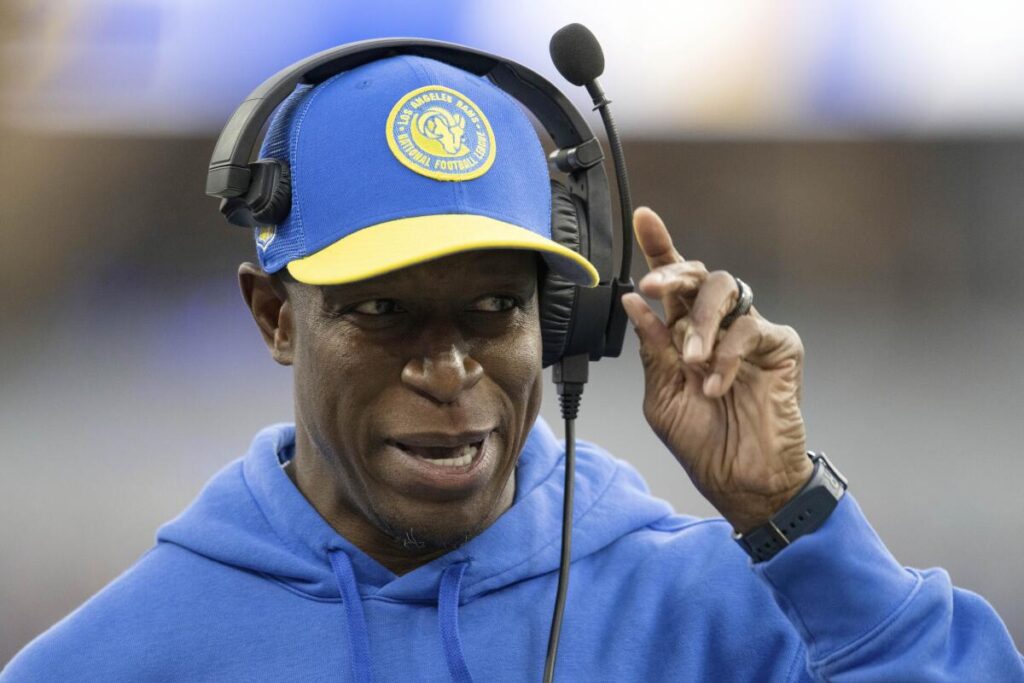
Source: latimes.com
Visiting a college campus for recruitment purposes is a critical component of the college sports recruiting process. It presents a unique opportunity for student-athletes to engage directly with college coaches, learn more about the athletic program, and solidify their interest in the institution.
To maximize the impact of these visits, it’s essential for recruits to be adequately prepared, from knowing the right questions to ask college coaches to presenting themselves in a way that reflects their dedication and fits with the program’s culture.
Preparing for In-Person Coach Interactions
To arrive well-prepared for on-campus coach meetings, student-athletes should conduct extensive research on the school and its athletic programs. Understanding the team’s history, its recent performance, and the coaching staff’s philosophy can provide a strong foundation for discussions. Additionally, rehearsing personal introductions and possibly having a list of informed questions to ask provides a sense of confidence and shows genuine interest on the part of the student-athlete.
Tips for Introducing Yourself and Family Members
Demonstrating strong social skills during campus visits is as important as showcasing athletic talent. Student-athletes should be ready to introduce not just themselves but also their family members to coaches and staff.
While the prospective athlete should remain the focus of the conversation, having family members present can convey a network of support. Remember, first impressions are lasting, and as such, attire, body language, and conversational cues should align with an individual serious about their college sports career.
- Research school and athletic program in depth
- Dress appropriately for the occasion
- Rehearse introductions to ensure confidence and clarity
- Prepare thoughtful questions about the program, team, and academic support
- Ensure the prospective student-athlete remains the primary communicator
Navigating the College Sports Recruitment Journey
Embarking on the college sports recruitment journey is no small feat. It demands not only athletic prowess but also the social intelligence that allows athletes to interact effectively with coaches and teams. Prospective student-athletes must strategically navigate these waters to make connections that can significantly impact their future sports careers.
Understanding the Role of Social Intelligence in Recruiting
Mastering social cues and engaging in thoughtful communication are pivotal to standing out in a competitive field. Asking effective questions for coaches during recruitment talks shows an athlete’s keenness to engage and learn. This is where the ability to read the room becomes an invaluable skill, helping athletes to tailor their conversations to the specific context of each meeting with a college coach.
Assessing the Right Fit: Academic and Athletic Considerations
Choosing a college is a dual-faceted decision that revolves not just around college sports recruiting prospects but also academic goals. It involves considering how a college’s athletic programs and academic offerings will align with a student’s long-term plans. Discerning the right questions to ask college coaches can shed light on everything from team dynamics to educational support, guiding students toward a well-balanced college experience that nurtures both their academic and athletic growth.
Parental Involvement in the Athletic Recruitment Process
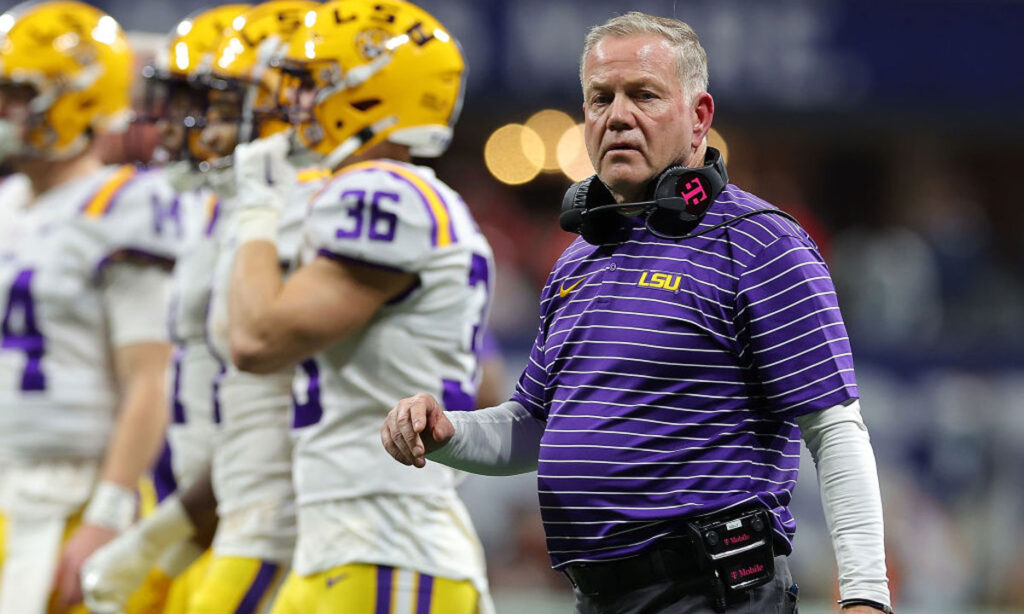
Source: the74million.org
The athletic recruitment process can be as challenging for parents as it is for student-athletes. Understanding the pivotal role of parental involvement, families are encouraged to actively participate by gathering information and raising pertinent questions related to an athlete’s future. Conversations with college coaches can provide invaluable insights into various aspects of a student-athlete’s life, guiding parents and prospective students in making well-informed decisions.
Questions Parents Should Consider Asking Coaches
Engaging in effective communication, parents can facilitate their child’s successful navigation through the complex landscape of athletic scholarship inquiries and college recruitment. By posing targeted recruiting questions, families can uncover critical information about the college’s athletic programs, funding opportunities, and the supportive environment on-campus. Such interactions with coaches can demystify the recruiting process, bringing clarity and confidence to families as they move forward.
- What academic support services are available to student-athletes?
- Can you explain the team’s culture and values?
- What housing options are provided for athletes?
- How does the athletic scholarship impact financial aid eligibility?
- What is the protocol in case an athlete is injured?
- Are there meal plans designed specifically for student-athletes?
Financial Aspects and Scholarships
In the realm of college athletics, the fiscal responsibilities and opportunities are significant factors influencing a family’s decision. Parents must acquire a clear understanding of scholarship structures, financial aid implications, and the additional expenses they might encounter throughout their child’s college career.
| Financial Aspect | Questions to Ask | Considerations |
|---|---|---|
| Scholarships | How are scholarships awarded, and what are the renewal criteria? | Terms of scholarship, duration, and conditions under which it may be revoked. |
| Financial Aid | Does an athletic scholarship affect eligibility for other financial aid? | Interplay between athletic scholarships and federal/state financial aid programs. |
| Additional Costs | What costs are not covered by the scholarship? | Out-of-pocket expenses such as travel, equipment, and personal expenditures. |
| Meal Plans | Are there meal plans tailored for athletes with higher nutritional requirements? | The adequacy of meal plans in supporting an athlete’s dietary needs. |
| Injury Protocol | How does an injury affect the scholarship, and what support is available? | Policies on medical care, scholarship retention, and support during recovery. |
As stakeholders in the educational and athletic development of their children, parents are integral to the recruitment process. Their proactive engagement, backed by thorough research and direct inquiries, paves the way for a fruitful and transparent dialogue with college coaches, ensuring a robust foundation for their child’s collegiate athletic career.
Determining Your Standing and Next Steps After Coach Meetings
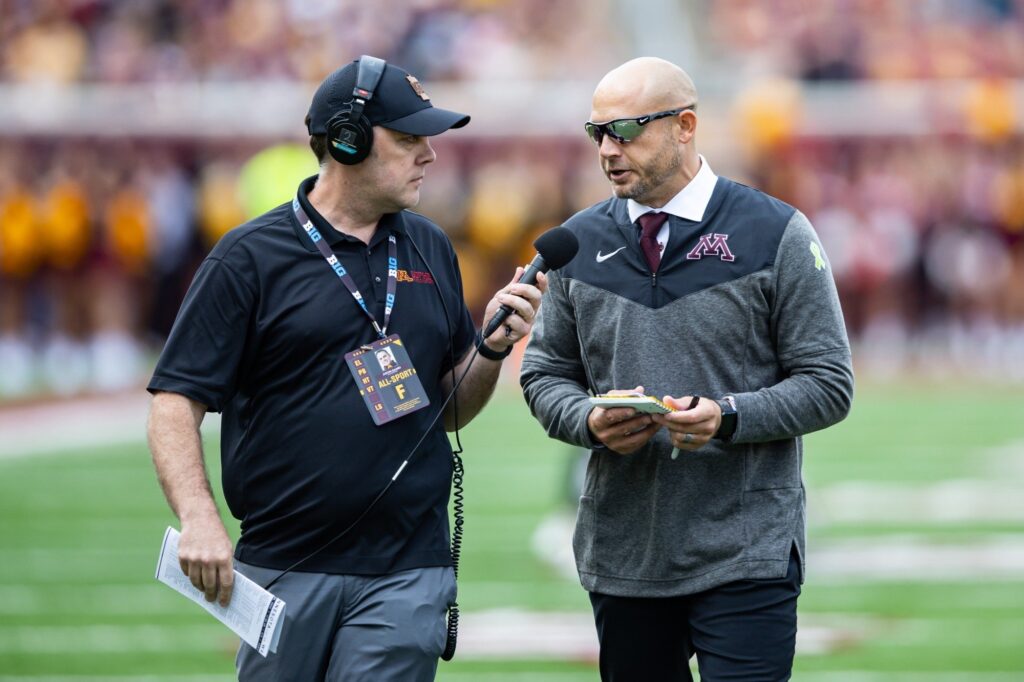
Source: mltennis.com
Successfully navigating post-interview communication with college coaches is a pivotal component of the recruitment process. The tactical exchange of recruiting questions and the interpretation of responses are integral parts of establishing a mutual interest and understanding what lies ahead. It’s also the stage where communication with coaches requires attentiveness and tact, as it shapes the trajectory of a student-athlete’s future in collegiate sports.
Follow-Up Communications Post-Interview
After initial meetings, follow-up communication is crucial. Student-athletes should express gratitude for the opportunity to meet and succinctly reinforce their keen interest in the program.
Following up keeps the dialogue active and allows athletes to pose additional college coach questions, clarifying their position and expectations. While remembering not to overwhelm coaches with messages, timely and polite inquiries can signal a genuine interest and help maintain a connection.
Decoding Coaches’ Responses and Actions
Understanding a coach’s feedback is key in evaluating a student-athlete’s standing in the recruiting process. Recruits should pay close attention to the specifics of the coach’s responses, such as invitations for campus visits, comments on athletic performance, or details on application steps. Coaches may also offer cues on the competitive landscape of recruiting, providing insights into how an athlete might prioritize their choices and navigate their decision-making process efficiently.
Conclusion
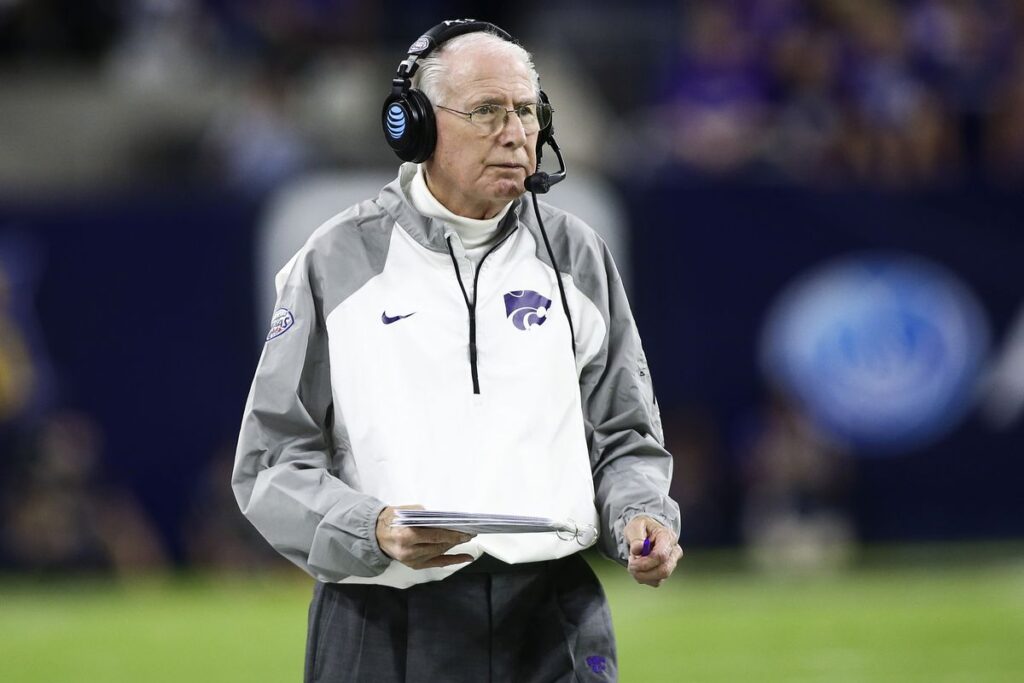
Source: theuconnblog.com
Navigating the intricate landscape of college sports recruiting, student-athletes have learned the significance of maintaining a professional relationship with college coaches. It is paramount that from first contact to subsequent interactions and final discussions, each athlete exhibits a high degree of professionalism and clear communication.
This foundational approach will not only set a precedent for future dealings but also solidifies trust and respect between the student and the coaching staff. Interacting with college coaches is more than a mere exchange; it is an opportunity to showcase dedication, character, and earnestness in becoming an asset to the college program.
Final Thoughts on Interacting with College Coaches
The recruitment journey is punctuated with moments where athletes get to express their talents, aspirations, and potential contributions to college programs. Key to this journey is not only the presentation of physical aptitude but also the intellectual and social interaction with recruiting coaches.
Throughout this process, the prospective college athletes are advised to engage thoughtfully, provide insightful inquiries, and demonstrate contagious enthusiasm for their future roles. Steadfast adherence to these principles has been shown to elevate a recruit’s standing in the highly competitive environment of college sports recruiting.
Maintaining a Professional Relationship Moving Forward
Building upon initial impressions, the objective for student-athletes is to foster and grow the professional relationship with coaches as their academic and athletic paths unfold. This entails prompt, respectful responses, transparency about intentions and decisions, and a continuous display of gratitude for the coach’s time and consideration.
Remember, the conduct portrayed during this process can have a long-standing impact, reaching beyond the collegiate experience. For those aiming to make sports a part of their career, sustaining these professional relationships might prove invaluable in the grand tapestry of their athletic and personal development.
FAQ
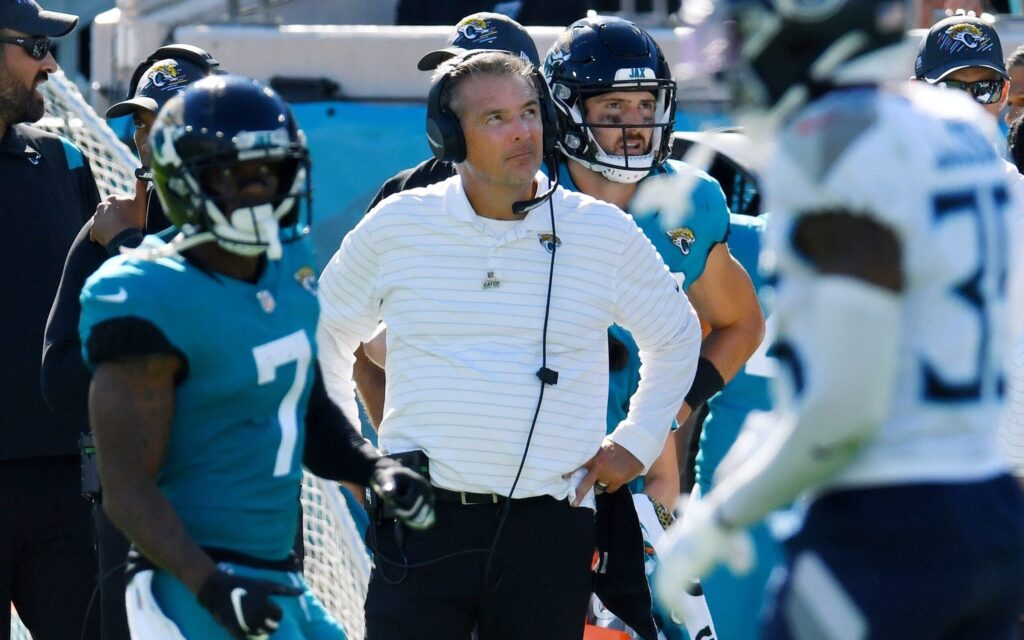
Source: the33rdteam.com
What questions should I ask college coaches during the recruiting process?
When engaging with college coaches, inquire about the team culture, expectations for players, coaching philosophy, academic support services for student-athletes, and specifics about training programs. Avoid asking directly about scholarships in initial conversations and challenging the coach on their strategy.
How can I make a strong first impression on a college coach?
To make a strong first impression, communicate professionally in both written and verbal interactions, show genuine interest in the program, and demonstrate preparedness by researching the college and its sports team. Always be respectful, confident, and articulate when expressing your qualifications and skills.
What are some best practices when emailing college coaches for the first time?
Use a clear and professional email address, ideally one that includes your name and graduating year. Start with a succinct and grammatically correct message outlining your interest in the program, why you’re a good fit, and your achievements or stats. Personalize each email to show you’ve taken the time to learn about the team and coach.
How should I present myself during in-person meetings with college coaches?
During in-person meetings, maintain a professional demeanor, dress appropriately, and be prompt. Introduce yourself confidently and answer questions directly, showing knowledge about the program and school. Display your engagement through intelligent questions and active listening.

